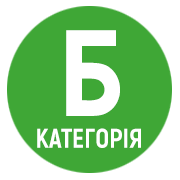COLLECTIVE LITERARY PATCHWORK AS THE NEWEST GENRE OF LITERARY ART
DOI:
https://doi.org/10.32689/maup.philol.2024.2.1Keywords:
literary genre, collective literary patchwork, patchwork novel, virtual communication technologies, the collective literary patchwork functionsAbstract
This article is devoted to an attempt to provide a scientific substantiation of a new literary genre – collective literary patchwork. This was fulfilled on the example of the literary work “Bosorka”, to provide its definition and outline its main functions. The study provides some examples of the existing literary genre as a comprehensive, multidimensional and dynamic phenomenon. The study emphasises their variations, which contributes to the literary works of a new type to emerge. The conditions for the emergence of collective literary patchwork are outlined, in particular, the impact of globalisation, Internet technologies, and development of new ways for virtual communication. This study attempts to present a conceptual design of the newest genre proposed by the article’s author – collective literary patchwork. The purpose of the article is to make an attempt to scientifically substantiate the specifics of the latest literary genre – a collective literary patchwork, on the example of the electronic work “Bosorka”. Accordingly, the main objectives are as follows: to define the newest literary genre – a collective literary patchwork, to study the conditions of the genre’s emergence, to propose an overview of its schematic design and outline its main functions, to review the first work written in the proposed genre – the electronic patchwork novel “Bosorka”. The scientific novelty of the topic consists in the fact that the newest literary genre, a collective literary patchwork, has been suggested and tested, which resulted in the writing of the collective patchwork novel “Bosorka”. The further need to study this work and substantiate the newest form of writing literary works causes the relevance and novelty of the study described in the article. It is ascertained that virtual communication technologies reveal enormous potential and can become the basis for discoveries in literature and even for the emergence of new genres. It is found that one of these new genres can be considered as a collective literary patchwork. Due to the technical ability to quickly unite many authors, including those from different countries, it is possible to create a large work in a relatively short period of time. Since a collective literary patchwork can involve writers from other parts of the world, their joint work may contain works written in different languages. Conclusions. In the process of studying the evolution of various literary genres, which leads to their modificationsand the emergence of new ones, the author of the article has suggested a definition of the newest literary genre – a collective literary patchwork, which should be understood as a type of literary work that combines a set of works of different genres created by a group of authors using a common theme and idea embodied in a prologue with a reference to the key character(s), his/her artistic world and a common place of events. The first work written in the proposed genre was the collective e-book «Bosorka», which was created by 228 authors on 2833 pages and was recognised by the National Register of Records of Ukraine in two categories. The records were registered on 07.06.2024 at the Interregional Academy of Personnel Management in Kyiv. The emergence of the newest genre – a collective literary patchwork, was made possible by the dynamic development of virtual communication technologies and the emergence of new ways of communication in the global society. We foresee the prospect of our further research in a comprehensive analysis of the collective e-book “Bosorka”, expansion of the proposed definition of the newest literary genre – a collective literary patchwork, its in-depth study and further approbation.
References
Александренко А. Зникнути в Карпатах. Аркуш. Сучасна україномовна літературна платформа. URL: https://arkush.net/book/20958/12 (дата звернення 27.06.2024).
Андрієнко А. Босорка і втрачене кохання. Аркуш. Сучасна україномовна літературна платформа. URL: https://arkush.net/book/20963/33 (дата звернення 27.06.2024).
Андрусів С. М. Мости між часами: Про типологію історичної прози. Українська мова і література в школі. 1987. № 8, С. 14–20.
Аніла кю Дивад. Серце бажало науки. Аркуш. Сучасна україномовна літературна платформа. URL: https://arkush.net/book/20963/22 (дата звернення 27.06.2024).
Аркуш. Сучасна україномовна літературна платформа. URL: https://arkush.net/user/11076 (дата звернення 27.06.2024).
Батура С. Колективний літературний печворк як новітній жанр сучасної літератури: теорія і практика. Proceedings of X International Scientific and Practical Conference. Tokyo, Japan. 13–15 June 2024. С. 487–496. URL: https://sci-conf.com.ua/wp-content/uploads/2024/06/TOPICAL-ASPECTS-OF-MODERN-SCIENTIFIC-RESEARCH-13-15.06.24.pdf (дата звернення 27.06.2024).
Батура С. Печворек як спосіб поєднання літературних жанрів: правовий аспект. Proceedings of I International Scientific and Practical Conference Lviv, Ukraine. 4-6 March 2024. С. 802–806. URL: https://sci-conf.com.ua/wp-content/uploads/2024/03/PERSPECTIVES-OF-CONTEMPORARY-SCIENCE-THEORY-AND-PRACTICE-4-6.03.24.pdf (дата звернення 27.06.2024).
Батура С. Пролог. Босорка. Нерозділене кохання. Аркуш. Сучасна україномовна літературна платформа. URL: https://arkush.net/book/20958/2 (дата звернення 27.06.2024).
Бахтин М. М. Эпос и роман. Вопросы литературы и эстетики. М.: Худож. Лит., 1975, 504 с. URL: http://lib.ysu.am/disciplines_bk/b13a9d3a38b0465be7845b70178c634b.pdf (дата звернення 27.06.2024).
Бикова Т. «Босорка» як вдалий літературний експеримент. Аркуш. Сучасна україномовна літературна платформа / рецензія. URL: https://arkush.net/blogs/6974 (дата звернення 27.06.2024).
Бовсунівська Т. В. Жанрові модифікації сучасного роману: монографія. Харків: «Діса плюс», 2015. 368 с. URL: http://elcat.pnpu.edu.ua/docs/Bovsunivska.pdf (дата звернення 27.06.2024).
Бражник О. Рецензія на роман-печворк «Босорка». Аркуш. Сучасна україномовна літературна платформа / рецензія. URL: https://arkush.net/blogs/6971 (дата звернення 27.06.2024).
Відьма. Велика українська енциклопедія. URL: https://vue.gov.ua/%D0%92%D1%96%D0%B4%D1%8C%D0%BC%D0%B0 (дата звернення 27.06.2024).






